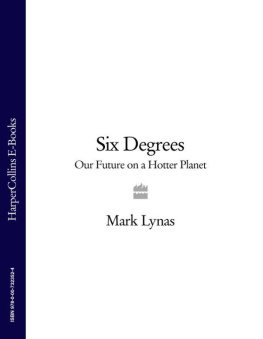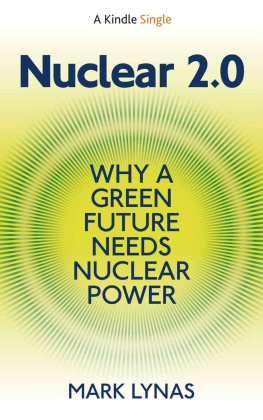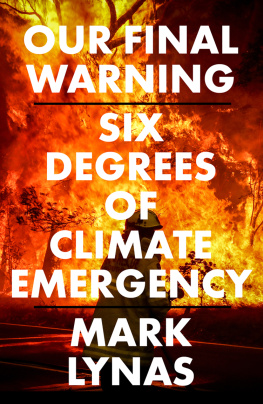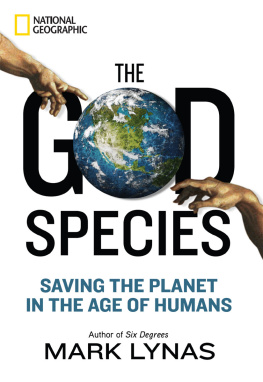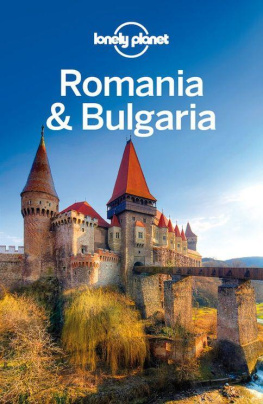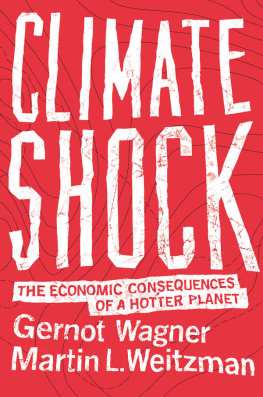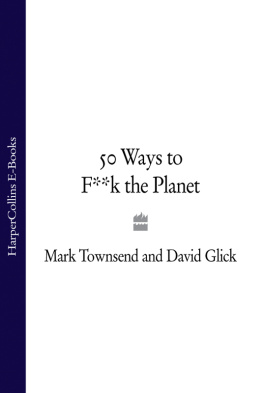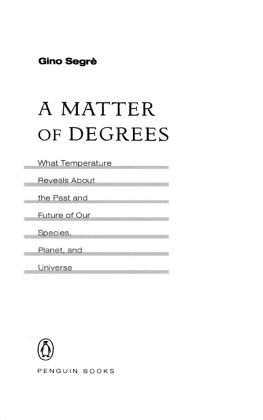Mark Lynas - Six Degrees : Our Future on a Hotter Planet
Here you can read online Mark Lynas - Six Degrees : Our Future on a Hotter Planet full text of the book (entire story) in english for free. Download pdf and epub, get meaning, cover and reviews about this ebook. publisher: Haper Collins, genre: Children. Description of the work, (preface) as well as reviews are available. Best literature library LitArk.com created for fans of good reading and offers a wide selection of genres:
Romance novel
Science fiction
Adventure
Detective
Science
History
Home and family
Prose
Art
Politics
Computer
Non-fiction
Religion
Business
Children
Humor
Choose a favorite category and find really read worthwhile books. Enjoy immersion in the world of imagination, feel the emotions of the characters or learn something new for yourself, make an fascinating discovery.
- Book:Six Degrees : Our Future on a Hotter Planet
- Author:
- Publisher:Haper Collins
- Genre:
- Rating:3 / 5
- Favourites:Add to favourites
- Your mark:
- 60
- 1
- 2
- 3
- 4
- 5
Six Degrees : Our Future on a Hotter Planet: summary, description and annotation
We offer to read an annotation, description, summary or preface (depends on what the author of the book "Six Degrees : Our Future on a Hotter Planet" wrote himself). If you haven't found the necessary information about the book — write in the comments, we will try to find it.
Six Degrees : Our Future on a Hotter Planet — read online for free the complete book (whole text) full work
Below is the text of the book, divided by pages. System saving the place of the last page read, allows you to conveniently read the book "Six Degrees : Our Future on a Hotter Planet" online for free, without having to search again every time where you left off. Put a bookmark, and you can go to the page where you finished reading at any time.
Font size:
Interval:
Bookmark:

SIX DEGREES
Our Future on a Hotter Planet
Mark Lynas

To my wife, Maria, son, Tom, and daughter, Rosa,
in the hope that most of the predictions here
need not come true.
From the weeping ground there sprang a wind,
flaming with vermillion light,
which overmastered all my senses,
and I dropped like a man pulled down by sleep.
Dante, Inferno, Canto III:
Dante enters the First Circle of Hell
The knock on the door came at night. In the darkness I could see two yellow jackets over black uniforms-the police. They were going door to door, the officers explained, to warn people in the area of the imminent risk of flooding. They handed over a photocopied leaflet, advising that we prepare to turn off the power and move all valuables upstairs, and were gone.
The rain had come two days earlier. It poured with torrential force for most of the day, accompanied by vivid flashes of lightning and intermittent claps of thunder. Roads were awash as flash floods swept off fields. Within hours, the rail link north was cut, and Oxford-like many other towns in the Midlands and southern England-was marooned. Four days later the waters were still rising, as a flood crest surged down the river Thames from more heavily inundated areas upstream. Turning on the television news I saw the pretty cathedral town of Tewkesbury turned into an island, both Cheltenham and Gloucester hit by power failures, and schools closed across the entire region. The rising flood swept over a water treatment plant, leaving a quarter of a million people with no drinking water for over a week. Though my own house was not flooded, whilst writing this I can still smell the stench of rotting waterweed left behind by the river on nearby Port Meadow.
The sheer intensity and violence of the rain reminded me of a tropical storm I rode out a few years earlier on the Outer Banks of North Carolina, whilst researching my first book High Tide. There was that same ominous dark quality to the sky, and the rainfall radar on the Meteorological Office website showed the same reds and whites of super-intense precipitation that I had previously witnessed whilst sheltering in the hurricane trackers' van near Cape Hatteras in 2002. Hurricanes generate some of the heaviest rainfall on Earth, and flooding during a hurricane strike is virtually a certainty. As the terrible drama that unfolded in New Orleans when Hurricane Katrina hit in 2005 showed, sometimes this flooding-combined with a monster storm surge-can be deadly.
All these events were windows into a changing world. Global warming is making the hydrological cycle more intense, causing heavier storms and more intense hurricanes to brew up out at sea. Yes, extreme weather has always been with us, but the fact that rising levels of greenhouse gases trap the sun's heat means that more energy is available in the system-so the worst is happening more and more often. The misery suffered in New Orleans three years ago felt to me like an insight into what the twenty-first century may have in store for many more of us, in a thousand locations across the world, as climate change accelerates.
The scenes lingered in my mind even as the city was emptied and the bedraggled survivors of New Orleans and the wider Gulf region were packed off to temporary shelters in Texas and elsewhere, where half a million still remain at the time of writing: arguably the first climate refugees, displaced permanently from their homes. I kept wondering: where next? What will happen as the world warms bit by bit? With up to six degrees Celsius of global warming on the cards over the next hundred years, according to the Intergovernmental Panel on Climate Change (IPCC), what will happen to our coasts, our towns, our forests, our rivers, our croplands and our mountains? Will we all, as some environmentalists suggest, be reduced to eking out a living from the shattered remains of civilisation in Arctic refuges, or will life go on much as before-if only a little warmer?
As I pondered these questions, I had already begun to sift through the latest scientific literature on global warming. I knew from earlier research for High Tide that scientists have now made hundreds of projections-mostly based on complex computer models-of how future global warming will affect everything from maize crops in Tanzania to snowfall in the Alps. Occasionally a particularly striking study makes headlines in the newspapers, but the vast majority of these forecasts are buried in obscure specialist journals, destined to be read only by other climatologists. Most of these journals are taken by Oxford University's Radcliffe Science Library, where they sit-undisturbed for weeks or even years on their dimly lit shelves-just a mile or so down the road from my own house. I realised that it was almost as if I had a Delphic Oracle in my back garden or Nostradamus living next door-except that these scientific prophecies were already coming true.
Earlier that year I had begun to make a daily pilgrimage down to the Radcliffe Science Library basement with my laptop, where as the weeks passed by I trawled through tens of thousands of scientific papers. Seasons came and went, and I barely noticed. Each relevant article, I slotted into a spreadsheet-papers about two degrees of global warming went into the two degrees slot, papers about five degrees of global warming went into the five degrees slot, and so on. Not all were computer model projections-some of the most interesting material came from palaeoclimate studies, investigations of how variations in temperatures have affected the planet during previous global warming events in prehistory. These records of past greenhouse episodes, I realised, could be analogues for the future: and they too slotted into my six degrees table according to the temperatures of the climatic periods they represented.
At the end, I found I had something truly unique: a degree-by-degree guide to our planet's future. And so, based on this raw material, the book gradually took shape: my first chapter included all the global warming impacts I could find associated with a one-degree rise in temperature, my second chapter covered two degrees, my third chapter covered three degrees and on up the scale to six degrees-the worst-case scientific scenario. No scientist and no journalist has ever undertaken this work before with anything like this attention to detail, and never before has so much of this information been presented comprehensibly to a general audience in book form.
As the work emerged, I felt a nagging suspicion that maybe I should be keeping it all secret. Six Degrees was beginning to feel like a survival manual, full of indications about which parts of the globe might need to be abandoned, and which would be most likely to remain habitable. Maybe I should be sharing this information only with my family and friends, to give those people closest to me a quiet heads-up? Or perhaps I should get it out as widely as possible, as a sort of cautionary tale, to convince people to campaign for rapid emissions cuts and avoid the worst-case scenarios before it is too late?
Obviously I chose the second, more optimistic course. But a related question continued to bug me as I did early public presentations of Six Degrees material, particularly when I overheard a conversation in the toilets after one event in which an audience member apologised to another for dragging them out to something so depressing. I was truly shocked. Depressing? It had honestly never occurred to me that
Font size:
Interval:
Bookmark:
Similar books «Six Degrees : Our Future on a Hotter Planet»
Look at similar books to Six Degrees : Our Future on a Hotter Planet. We have selected literature similar in name and meaning in the hope of providing readers with more options to find new, interesting, not yet read works.
Discussion, reviews of the book Six Degrees : Our Future on a Hotter Planet and just readers' own opinions. Leave your comments, write what you think about the work, its meaning or the main characters. Specify what exactly you liked and what you didn't like, and why you think so.

